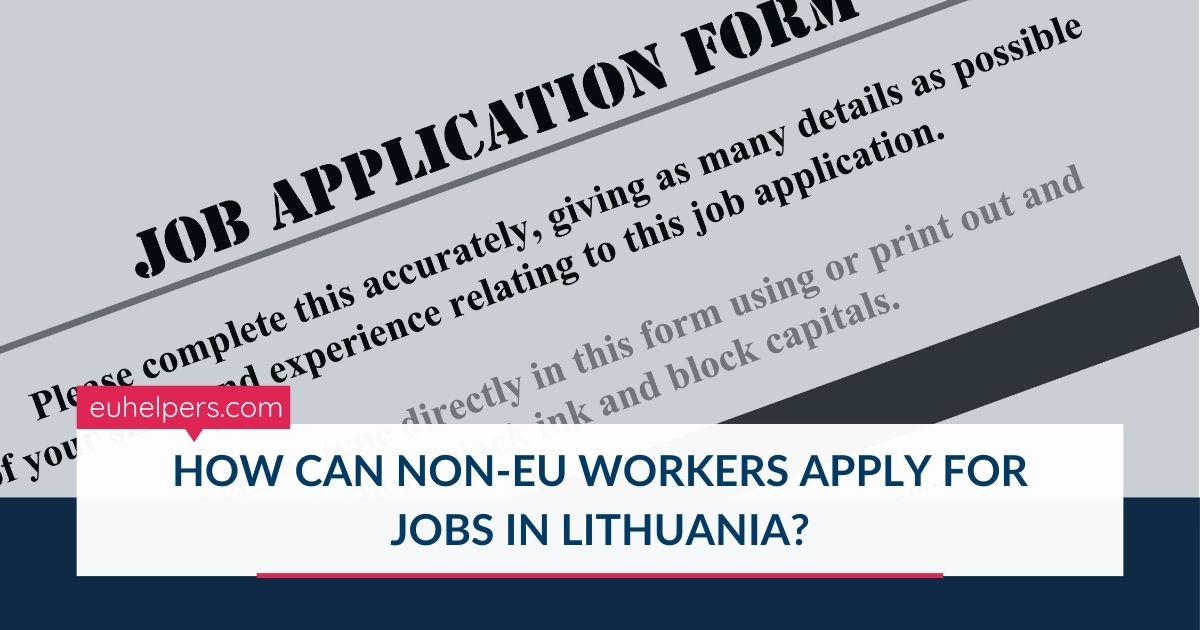Lithuania has become an attractive destination for professionals seeking work in Europe. While EU citizens have easier access to jobs, non-EU workers can also find opportunities in Lithuania by following the proper legal procedures. Here’s a step-by-step guide to help you understand how to apply for jobs as a non-EU worker.
Step 1: Check Eligibility
Non-EU citizens must have the legal right to work in Lithuania. This usually means:
-
Obtaining a work permit or a residence permit for employment.
-
Securing a job offer from a Lithuanian employer before applying for a work permit.
-
Meeting qualification requirements for the specific role.
Step 2: Find Job Opportunities
Popular sectors for non-EU workers include:
-
Information Technology (IT): Software development, programming, and IT support.
-
Engineering & Manufacturing: Factories, production, and technical roles.
-
Healthcare: Nurses, doctors, and medical staff.
-
Hospitality & Tourism: Hotels, restaurants, and travel services.
-
Education & English Teaching: Language schools and international programs.
Job portals, LinkedIn, and recruitment agencies are the best sources to find openings. Networking with local expat communities can also be helpful.
Step 3: Secure a Job Offer
-
Most work permits require a signed employment contract from a Lithuanian employer.
-
The employer often submits an application to the Migration Department for your work permit.
Step 4: Apply for a Work Permit
-
Work permits are generally employer-sponsored.
-
Documents usually include: passport, employment contract, CV, and proof of qualifications.
-
The permit may take several weeks to process, so plan accordingly.
Step 5: Apply for a Residence Permit
Once the work permit is approved, you can apply for a residence permit for employment. This allows you to legally live and work in Lithuania for the duration of your contract.
Step 6: Arrive and Register
-
Upon arrival, register your residence with the local municipality.
-
Apply for a personal identification number if required.
-
Open a local bank account and arrange health insurance.
Non-EU workers can successfully work in Lithuania by following the correct legal procedures: securing a job offer, obtaining a work permit, and applying for a residence permit. With the right preparation, Lithuania offers excellent career opportunities in IT, healthcare, education, and other growing sectors.

